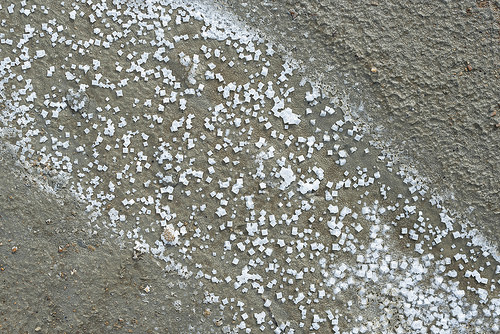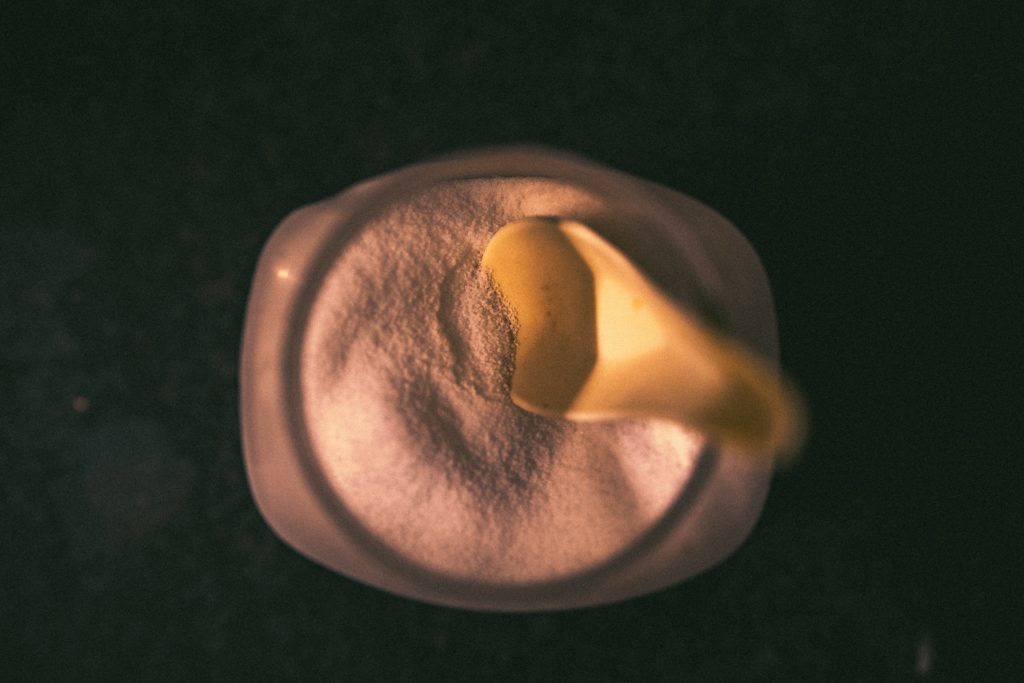
Epsom salt is a commercial name for magnesium sulfate. Magnesium sulfate is a mineral that can be found naturally or manufactured.
Magnesium itself is a mineral that is found within plants, animals, and human beings. It is also one of the most common elements inside the Earth’s crust.
In our bodies, almost all magnesium is found within our soft tissues, muscles and bone. These magnesium reservoirs are important for many vital processes.
It helps to stabilize enzymes that are vital for essential functions, such as muscle contraction and protein synthesis.
Bone formation, heartbeat, and brain activity are also reliant on magnesium to a certain extent. (Source)
Sulfate is a type of inorganic salt. Certain rock and soil formations can contain sulfate, as can bodies of groundwater. (Source)
Table of Contents
The History of Epsom Salt

The name “Epsom salt” came about as a result of where this mineral was found and its properties.
Epsom is a city located in England. It is one of areas where magnesium sulfate was first discovered.
Magnesium sulfate was likely used in other regions across the globe. However, the Epsom, England discovery gave it the moniker that stuck.
As for the “salt” part of the name, it likely references the chemical structure of magnesium sulfate. (Source)
The discovery of this useful compound was a happy accident that took place in the early 17th century. Local Epsom cowherd Henry Wicker spotted a body of water from which his cattle could stop and drink.
However, none of his thirsty herd would drink any of it – the water was bitter to the taste.
This taste can be attributed to sulfate, which endows water with an acerbic flavor. Take note – if you come across bitter tap water, it might very well be high in sulfate!
Wicker collected a sample of this water, and found that when it evaporated it left behind crystals. These colorless crystals were magnesium sulfate, soon to be known as Epsom salt.
Through experimentation by either Wicker himself or his neighbors, the crystals were found to have beneficial properties.
If dissolved into bathwater, they were said to relieve aching muscles. If ingested, the crystals produced a potent laxative effect. (Source)
Epsom Salt Uses

From these humble origins, Epsom salt is used in many industries today. It is used as in the manufacture of fertilizers and cements.
Tanning and dyeing factories also make use of magnesium sulfate. Medically, it has a wide range of uses from purgative to calmative. (Source)
Magnesium sulfate can be found throughout the world. It is a type of mineral deposit, meaning it is present as a deposit and in other mineral springs.
It can be extracted from epsomite and kieserite. These are two types of minerals that contain magnesium sulfate.
Epsom salt can also be manufactured by forcing a chemical reaction. Magnesium oxide and sulfuric acid can react together to create magnesium sulfate. (Source)
Health Benefits of Epsom Salt

Epsom salt (magnesium sulfate) has multiple health advantages. These small crystals are used to treat and relieve the symptoms of various ailments.
Epsom Salt as a Laxative
From its early discovery in Epsom, magnesium sulfate was used as a laxative. It is still used as a common remedy for mild to moderate constipation.
Epsom salt is a highly potent laxative. It typically provokes a bowel movement no more than six hours after consumption.
This is because Epsom salt cannot be absorbed very well by your gut. Instead, these super-hydrating crystals help fluid to collect in your intestines.
The excess fluid then helps to soften the blockage in your intestines, allowing it to pass. It is safe to use on a regular basis by the average healthy adult for constipation relief. (Source)
Epsom Salt and Epilepsy
Historically, Epsom salt was also administered to epileptic individuals. Magnesium sulfate is capable of reducing seizures.
A study in 1936 examined the effects of small, regular doses of Epsom salt on epileptic individuals.
The results showed that Epsom salt did reduce the frequency of seizures. More than half of the 100 patients displayed an improvement in their symptoms. (Source)
Today, there are other medications that are used specifically to treat epilepsy. However, magnesium sulfate is still used to treat certain types of seizures.
Pregnant women can develop a disorder known as eclampsia. It can cause seizures which can potentially endanger mother and child.
Magnesium sulfate helps to control these seizures if they occur. It is usually administered intravenously over a period of hours.
Epsom Salt and Magnesium Deficiency
Magnesium deficiency is a condition in which the body lacks magnesium. Excessively low levels of magnesium can cause serious health issues.
The symptoms of magnesium deficiency can include fatigue and cramping muscles. You may also suffer from an irregular heartbeat and muscle weakness.
Magnesium sulfate is given to patients with dangerously low magnesium levels. Depending on the severity of symptoms it can be administered by injection or intravenously. (Source)
Epsom Salt and Pain Relief
One of the most popular uses of Epsom salt is to alleviate mild sprains and sore muscles. Epsom salt baths are a traditional remedy for these types of injuries.
Stress and symptoms of magnesium deficiency are also said to be relieved with Epsom salt baths.
This healing aspect of the crystals is based on the premise that you can absorb healing magnesium sulfate through your skin.
Unfortunately, these claims have little basis in scientific fact. It is nearly impossible for Epsom salt to penetrate the biological membranes of your skin.
Inside your body, there are specific cells that work to transport magnesium. These cells do not exist on the surface of your skin.
One study claims repeatedly bathing with Epsom salt raised magnesium levels in the blood. However, it was not peer reviewed or published in a scientific journal. (Source)
It is more likely that the hot water of the bath is what relieves mild muscle pain. Still, Epsom salt can be used safely in baths!
How to Use Epsom Salt

Epsom salt can be purchased from most pharmacies without a prescription. If you are going to take Epsom salt orally and take other medications, consult your doctor.
For treating constipation, follow the dosage as instructed on the package or pamphlet. If you choose to bathe with Epsom salt, monitor your skin for any allergic reactions.
If you are breastfeeding, pregnant, diabetic or have kidney disease check with your doctor before using Epsom salt. (Source)